简体中文
繁體中文
English
Pусский
日本語
ภาษาไทย
Tiếng Việt
Bahasa Indonesia
Español
हिन्दी
Filippiiniläinen
Français
Deutsch
Português
Türkçe
한국어
العربية
ASIC Regulated Forex Brokers: A Comprehensive 2025 Guide
Abstract:Learn how ASIC regulated forex brokers protect traders through strict rules, licence verification, and why they’re trusted by global investors.
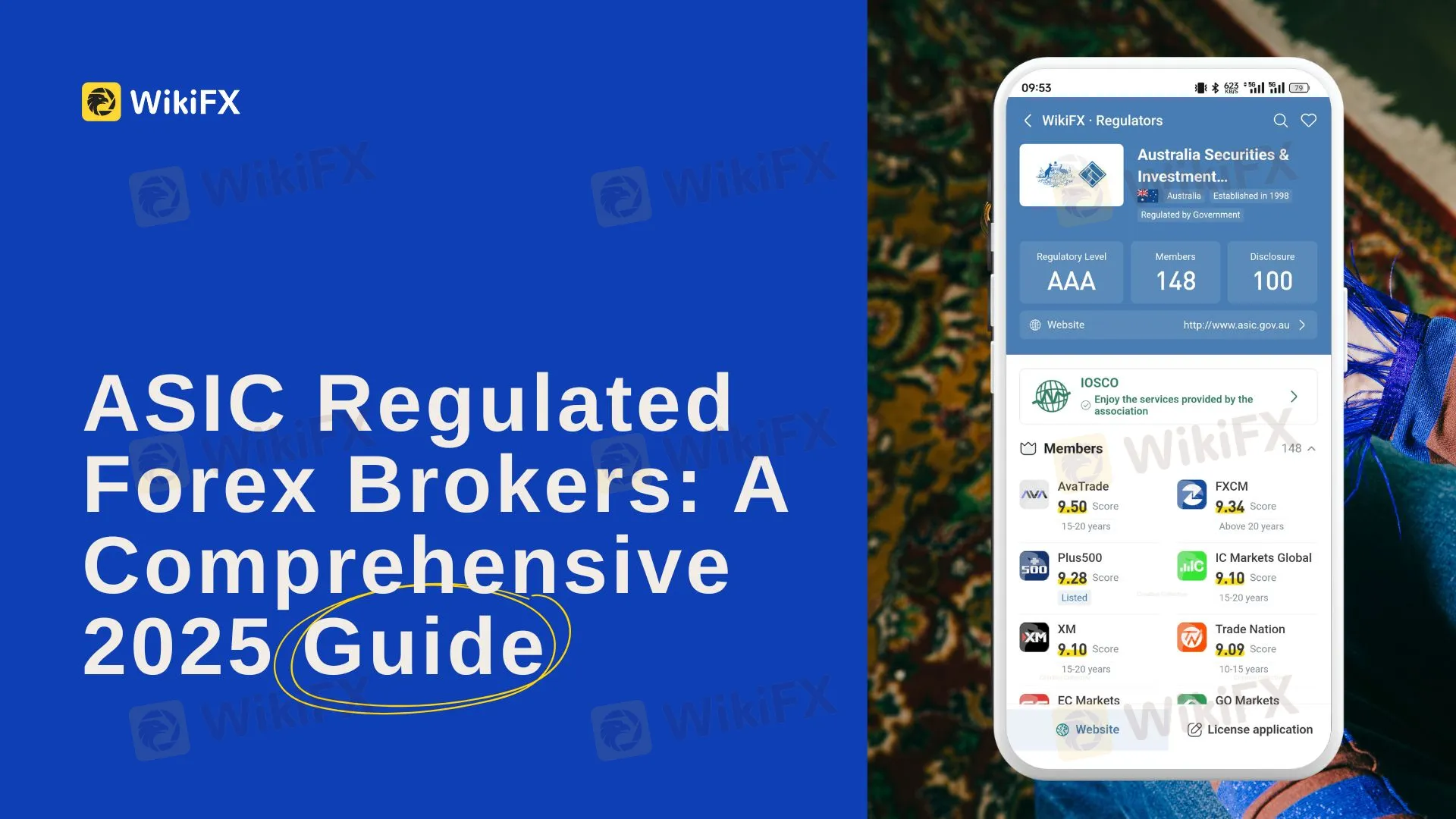
In the fast-paced world of forex trading, selecting a trustworthy broker is a decision that directly impacts the safety of your capital. Regulation is the single most important safeguard against fraud, mismanagement, and operational malpractice. In Australia, that responsibility lies with the Australian Securities and Investments Commission (ASIC)— a regulator with a global reputation for strict oversight and investor protection.
Understanding ASIC Regulation
An ASIC regulated forex broker operates under the Australian Financial Services (AFS) Licence. This licence is not just a formality; it comes with a series of legal obligations designed to protect traders. Brokers must hold a minimum level of capital reserves to ensure financial stability and must keep client funds in segregated trust accounts, separate from the companys operational money. This prevents brokers from using client deposits to cover business expenses or trading activities.
Transparency is another cornerstone of ASIC regulation. Brokers are required to disclose trading conditions — including spreads, commissions, and leverage — clearly and accurately. Marketing materials must not mislead traders, and any claims made in advertisements must be verifiable. Since March 2021, ASIC has enforced leverage caps of 1:30 for major forex pairs and lower ratios for minors and other CFD products. These rules aim to limit the potential for catastrophic losses among retail clients, particularly new traders.
The ASIC Licensing Process
Gaining ASIC authorisation is a rigorous process. Prospective brokers must submit detailed business plans, operational procedures, risk management frameworks, and compliance strategies. The application also requires proof of financial solvency, including audited statements that meet ASICs capital adequacy standards.
Once the licence is granted, the broker is subject to continuous monitoring. ASIC can demand periodic reports, conduct unannounced inspections, and review how the broker handles complaints. Any breach of these requirements can result in fines, suspension, or the complete revocation of the licence.
Common Violations and ASICs Enforcement Actions
Over the years, ASIC has acted decisively against brokers that failed to meet its standards. Typical violations include:
- Misleading advertising regarding spreads or leverage
- Failure to segregate client funds
- Offering products to clients in jurisdictions where the broker is not authorised
- Inadequate disclosure of fees or risks
When breaches occur, ASIC can issue public warnings, impose financial penalties, or revoke licences entirely. These enforcement actions serve as both a penalty for the offending broker and a warning to the rest of the industry.
Why European Traders Choose ASIC Regulated Brokers
Although ASIC is an Australian regulator, its reputation extends well beyond its national borders. Many European traders actively seek out ASIC regulated forex brokers for several reasons. First, ASIC‘s capital requirements are among the highest in the industry, which significantly reduces the risk of broker insolvency. Second, ASIC’s enforcement record shows that it is willing to take action against misconduct, offering an additional layer of confidence for traders.
Another advantage is that many ASIC-regulated brokers hold multiple licences, such as from the UK‘s Financial Conduct Authority (FCA) or the Cyprus Securities and Exchange Commission (CySEC). This multi-jurisdictional regulation means European traders can enjoy both ASIC’s protections and the benefits of trading under EU or UK rules.
How to Verify an ASIC Licence
In an era where unlicensed brokers often make false claims about their regulatory status, verifying a broker‘s credentials is critical. ASIC maintains an official Professional Registers database where traders can search by the broker’s legal entity name or AFS licence number. The listing will confirm whether the licence is active, suspended, or revoked, and will display the registered company name.
However, the process can be time-consuming for those unfamiliar with ASIC‘s system. A faster option is to use independent verification tools such as WikiFX, which compiles updated global broker licence information — including ASIC-licensed entities — in one place. On WikiFX, you can confirm a broker’s regulation, see its compliance record, and compare it with other regulated firms.
Making the Right Choice
When selecting an ASIC regulated broker, focus on more than just the fact that it holds a licence. Assess its trading platforms, range of instruments, execution speed, and customer service quality. Determine whether the broker offers platforms like MetaTrader 4 or 5, or proprietary systems that might better suit your strategy. Look at spreads and commissions in real market conditions, not just whats advertised.
Finally, verify the brokers reputation by reviewing independent assessments and trader feedback. Doing this, alongside confirming its ASIC licence via WikiFX, will give you a clear, unbiased view before you invest any capital.
Disclaimer:
The views in this article only represent the author's personal views, and do not constitute investment advice on this platform. This platform does not guarantee the accuracy, completeness and timeliness of the information in the article, and will not be liable for any loss caused by the use of or reliance on the information in the article.
Read more
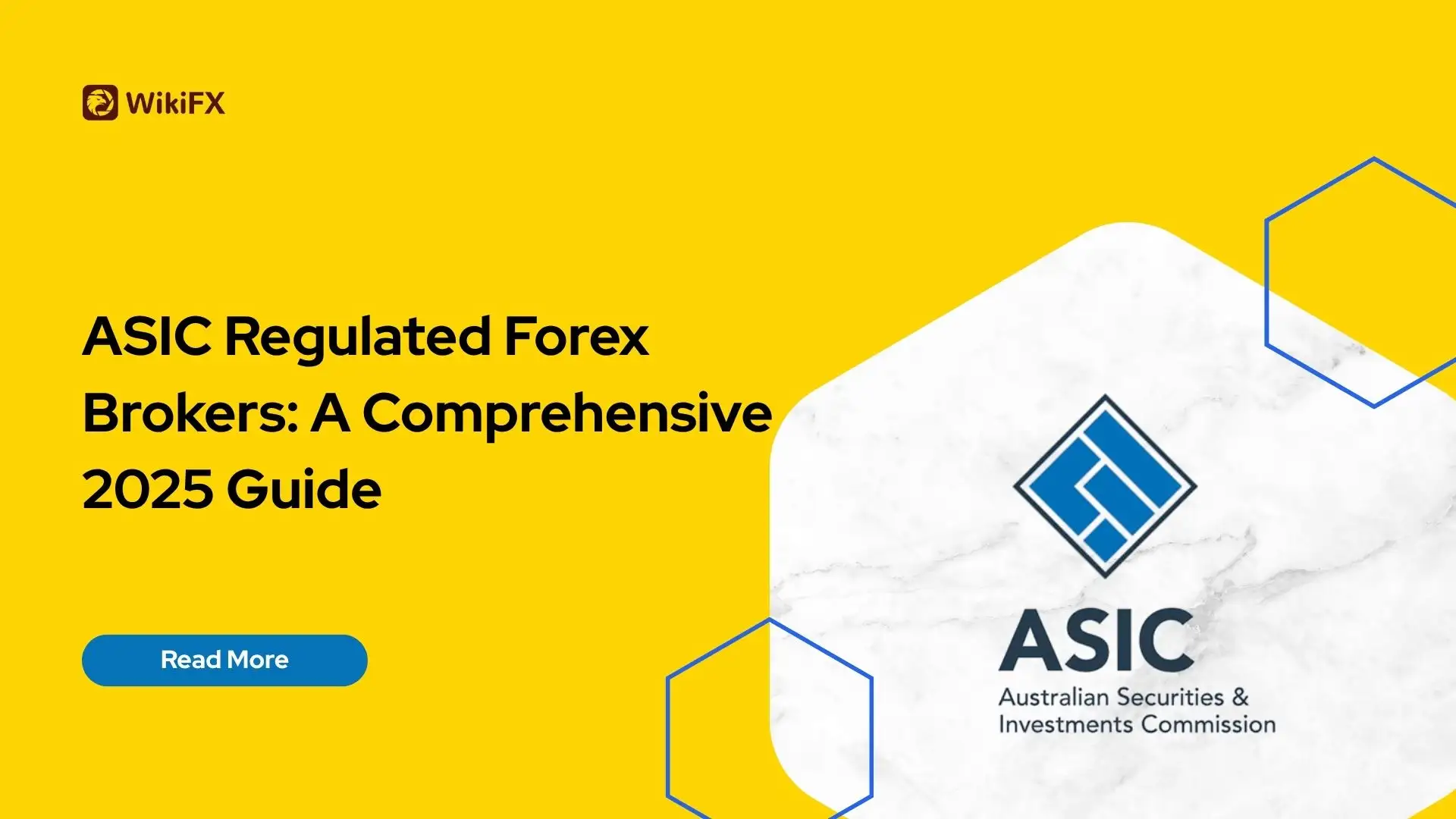
Swap Free Forex Account Explained: Benefits and Key Considerations
Discover how a swap free forex account works, its advantages, potential hidden costs, and how to choose a regulated broker offering Islamic trading accounts.
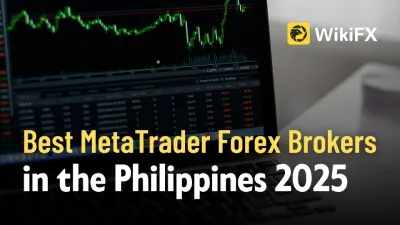
Best MetaTrader Forex Brokers in the Philippines 2025
Looking for the best MetaTrader forex brokers in the Philippines for 2025? See top MT4/MT5 brokers, fees, platforms, and PH-specific tips to trade smarter.
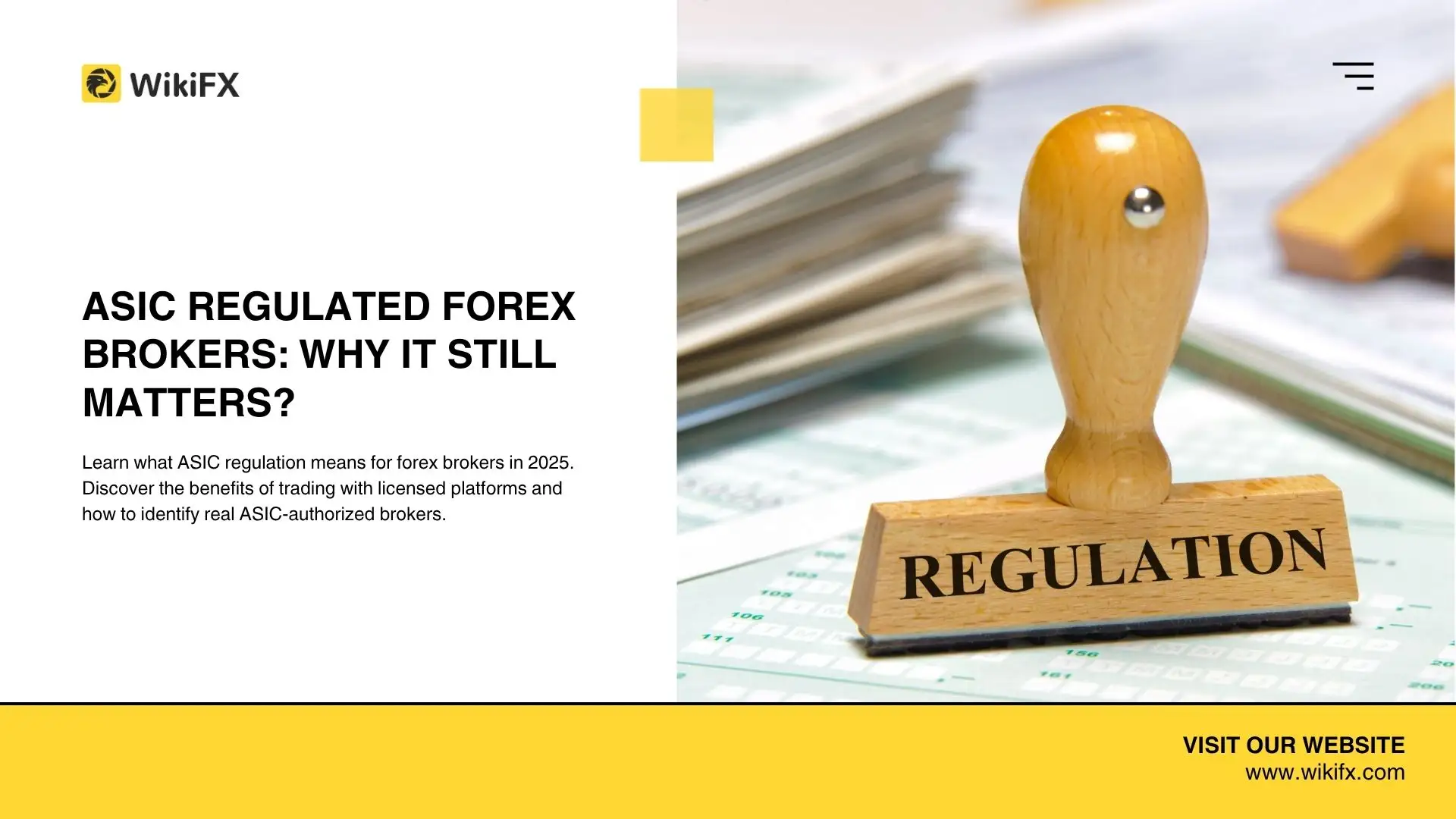
ASIC Regulated Forex Brokers: Why Licensing Still Matters in 2025
Looking for ASIC regulated forex brokers? Understand the value of ASIC oversight and how to easily verify a broker’s license in 2025.
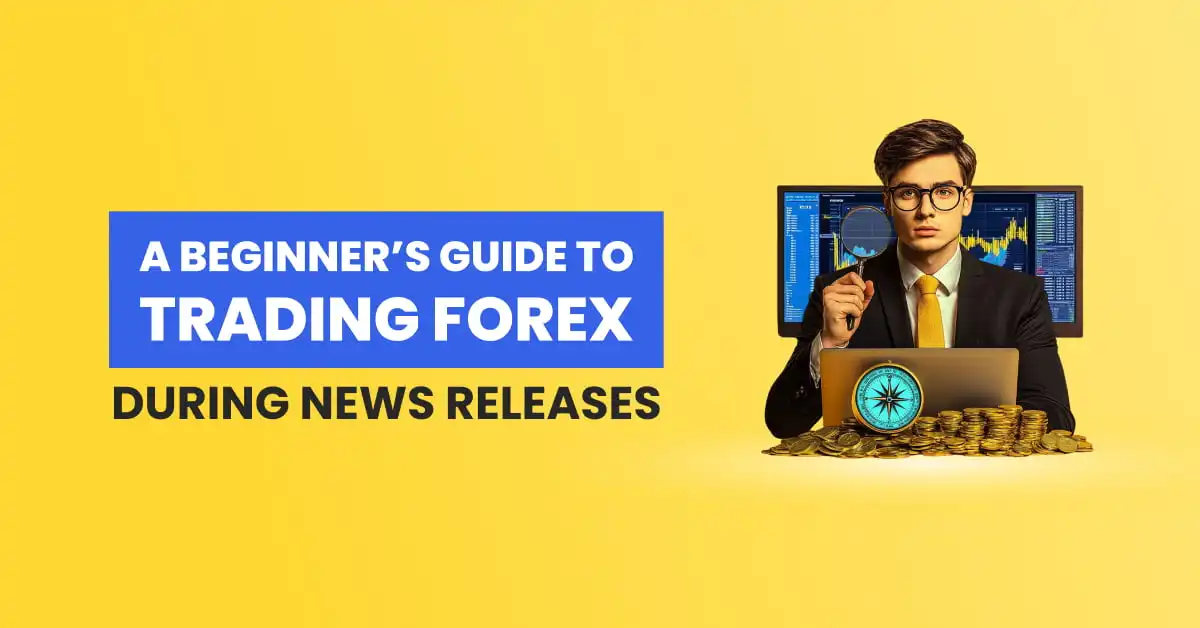
A Beginner’s Guide to Trading Forex During News Releases
In the world of currency trading, few moments offer as much potential or peril as a major news release. For beginner traders looking to make money with forex, understanding how to navigate economic announcements is not just useful, it’s essential.
WikiFX Broker
Latest News
Charles Schwab Forex Review 2025: What Traders Should Know
What WikiFX Found When It Looked Into XS
The Global Inflation Outlook
Datuk Seri Linked to RM8.4 Million Gold Investment Scam Under Police Probe
The Psychology Behind the Ascending Triangle Pattern in Forex
ASIC Regulated Forex Brokers: A Comprehensive 2025 Guide
How 3 Simple Steps Cost a Businessman INR 4 Crore in a Forex Scam
PrimeXBT Expands FSCA Licence and Enhances Crypto Services in 2025
TopFX Launches Synthetic Indices Trading on cTrader Platform
Is TradeEU Reliable in 2025?
Currency Calculator


